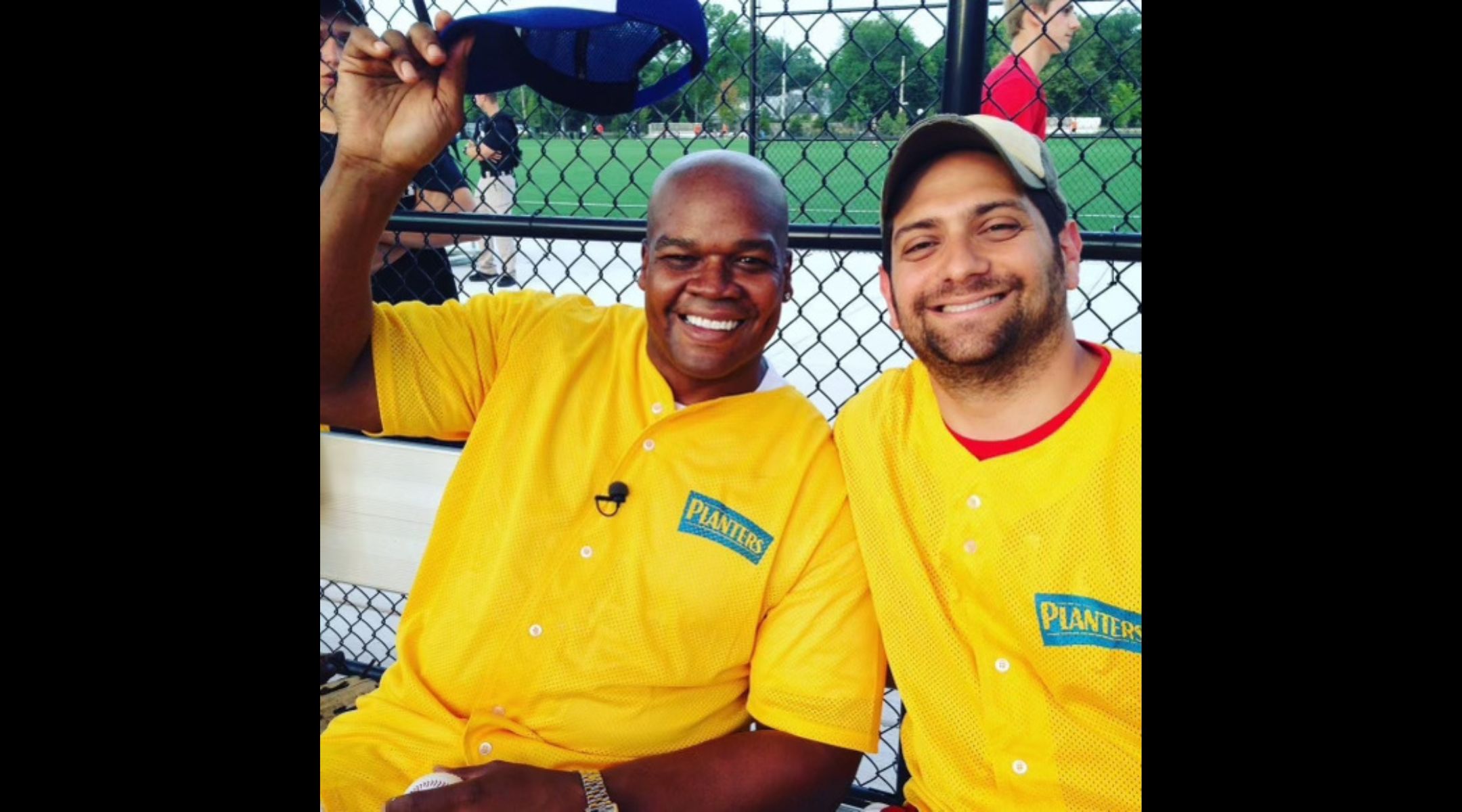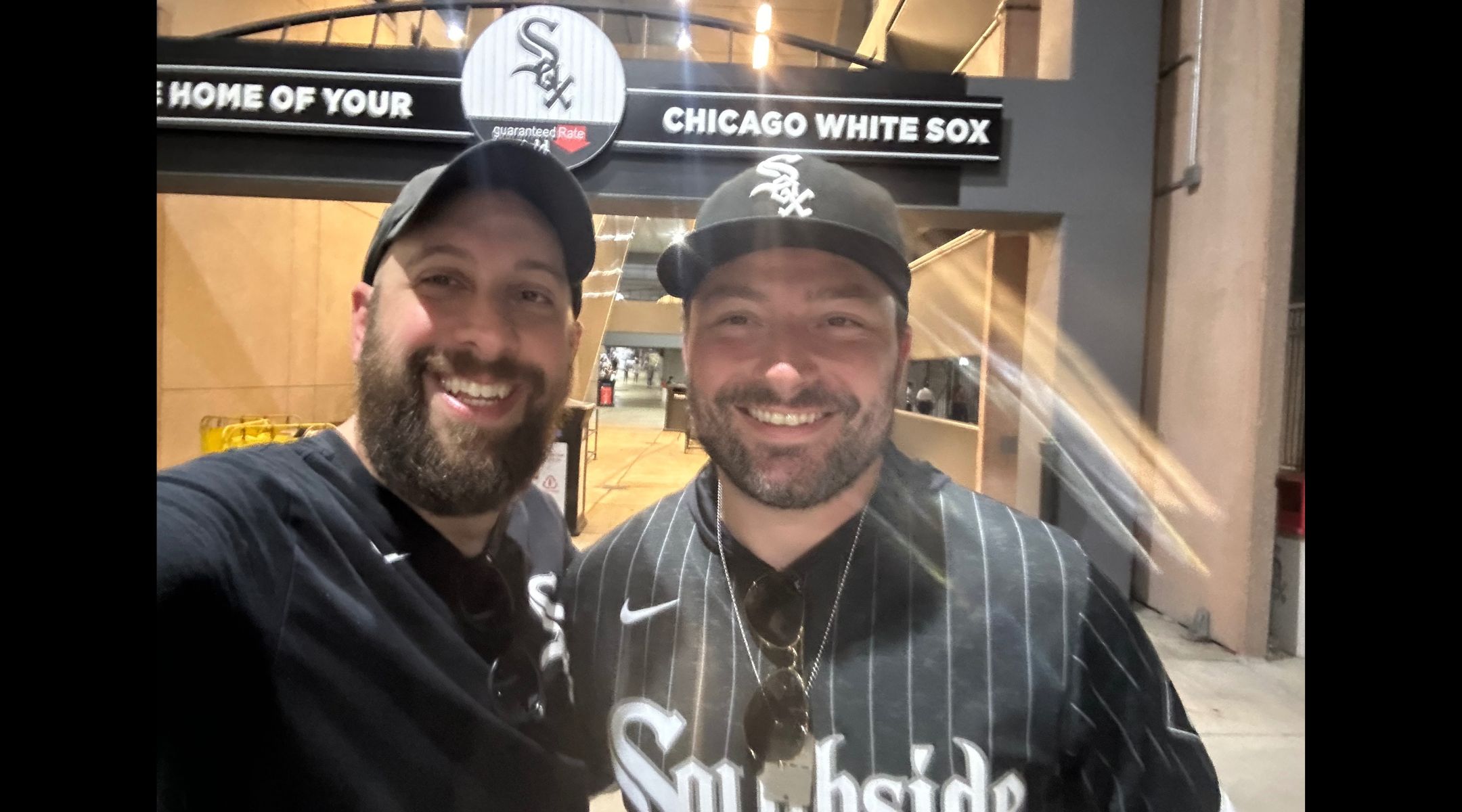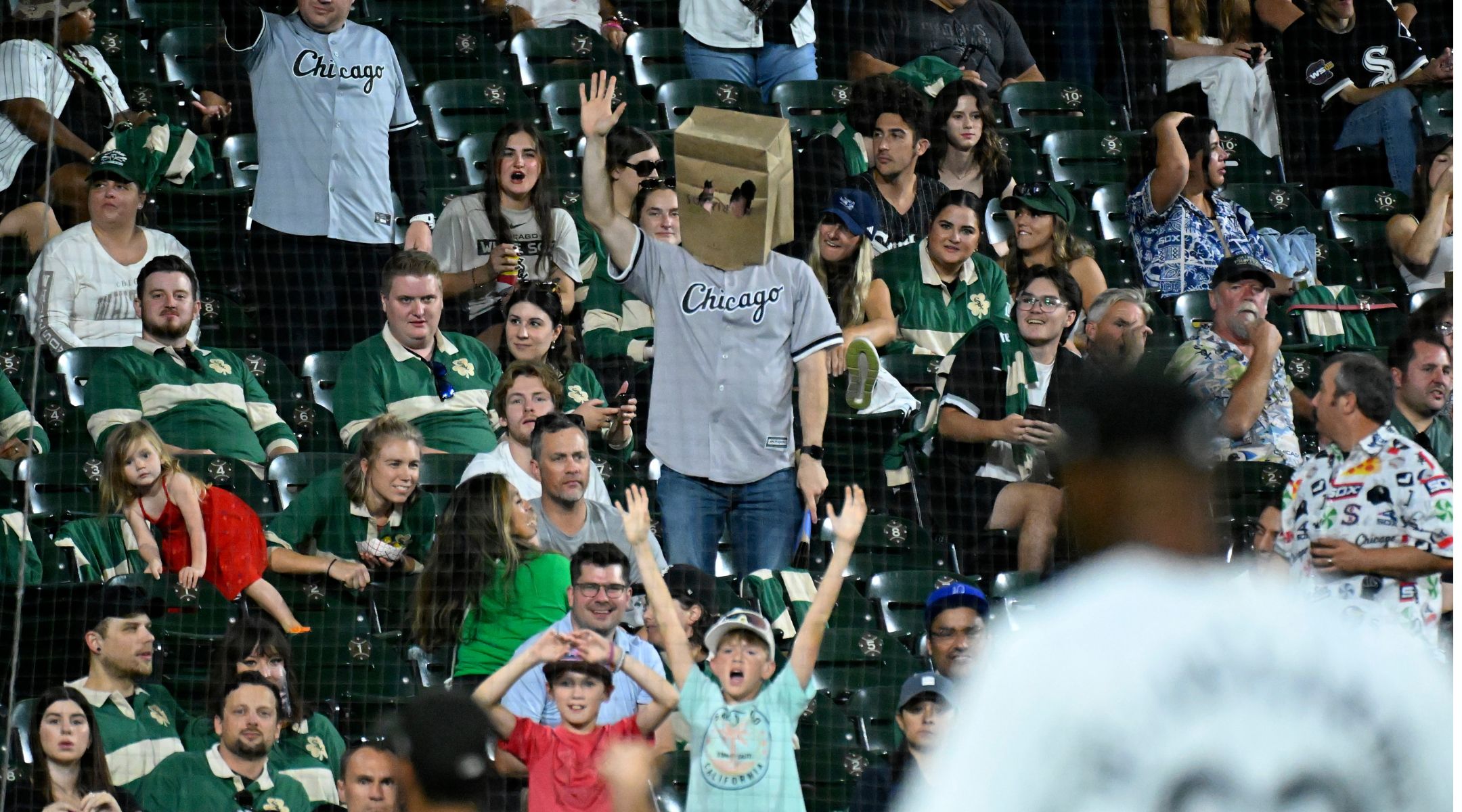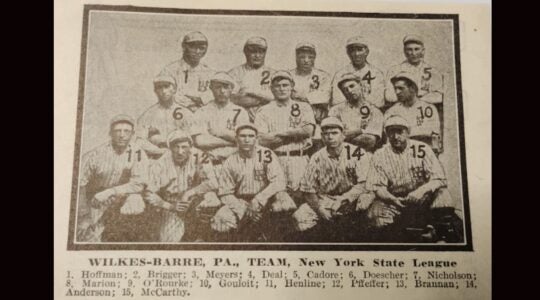For as long as Rabbi Jeremy Fine has been alive, he’s been a fan of the Chicago White Sox. This Opening Day, he hoped that his team would provide a welcome diversion from what has been an excruciating year.
Alas, this was not the season.
“It was obviously a very tough year for the Jewish people,” said Fine, who leads the Conservative Congregation B’nai Tikvah in Deerfield, Illinois. “Having a great baseball season, or something to look forward to, would have been really nice. A great distraction from torment.”
Instead, the Sox have only tormented their fans more. On Sunday, Chicago’s South Side team lost its 120th game, tying the 1962 New York Mets’ modern record for losses in a single season. And there are still six games to go — all but ensuring that the White Sox will set a new record for baseball futility.
For Fine and his fellow Jewish White Sox fans, the experience of watching their beloved team notch a miserable record feels, well, culturally appropriate.
“Being a White Sox fan, it requires, first of all, devotion to the game, to the game of baseball, which I have,” said Edward Hamburg, 73, who moved to Chicago for graduate school 48 years ago and has been a White Sox fan ever since. “It is a test of loyalty that Jews are very comfortable with.”
He added, “But I can understand why non-Jews might question our sanity on a regular basis.”
Hamburg, a former computer software executive and political science professor, said he feels comparisons to the 1962 Mets are unfair — to the Mets. The Queens team, after all, was in its inaugural season.
“I lived through that season, and I thought it was pretty funny,” he said. “This is not funny. This is just really, really pathetic.”
One silver lining for Jewish Sox fans this season has been the two Jewish players who at various points played for the team. Veteran outfielder Kevin Pillar began the season in Chicago, though he only played in 17 games before the team released him and he joined the Los Angeles Angels. Pitcher Jared Shuster was traded to the Sox from Atlanta before the season and has appeared in 37 games, primarily out of the bullpen.
Fine said watching Pillar and Shuster was “the only thing I was excited about” heading into the season. Jason Loeb — who has gotten sympathy from strangers for his White Sox vanity license plate — called it a “point of pride” to root for Jewish players. And Hamburg lauded the wider slate of Jewish players in MLB today.

Rabbi Jeremy Fine, right, with Chicago White Sox Hall of Famer Frank Thomas. (Courtesy of Fine)
“I’m proud to see my brethren participating in the game at a level that I think I’ve never seen,” Hamburg said. “The fact that Chicago is participating, and the White Sox are participating in it, that’s great. But, I’m sorry, it’s not enough. It’s not enough to salvage this season’s experience.”
Each of the Jewish White Sox fans interviewed for this article echoed a similar sentiment — that the team’s failures directly stem from its ownership and front office. That’s made especially painful because the team is owned by Jerry Reinsdorf, an 88-year-old Jewish billionaire who also owns the NBA’s Chicago Bulls.
Reinsdorf wasn’t always persona non grata among Sox fans. He owned the Bulls during their championship runs in the 1990s, and after the White Sox won the 2005 World Series, Sox fan Henry Bernstein said Reinsdorf was “like everyone’s Jewish grandpa.” But with the Sox on the brink of infamy, their embattled owner has lost his fans’ goodwill.
“Jerry Reinsdorf has some serious repenting to do this time of year,” said Bernstein, 42, who works at a Chicago Jewish day school. Referencing a touchstone of the Yom Kippur confessional liturgy, he added, “He should be there all day saying ‘Ashamnu bagadnu’ and asking for forgiveness from every single fan.”
Even a fan of the Sox’s crosstown arch-rivals, the Cubs, agrees that Reinsdorf is standing in the way of his own team’s success.
“Jerry Reinsdorf, what a shonda,” said Rabbi Tamar Manasseh, a Cubs fan who lives on the South Side, using the Yiddish term for disgrace. “A shonda, what he has done to the White Sox. I’m not even a fan, and I am mortified and I’m saddened. My heart breaks for Sox fans.”
For many Chicago sports fans, it’s strange to think of the White Sox as the exemplars of failure. The Cubs, after all, went 108 years without a World Series title and earned the nickname “the Lovable Losers” before finally notching one in 2016. (Winning presented its own psychic difficulties.) But now Manasseh has found herself in the unusual position of comforting fans of the other Chicago baseball team.
Manasseh, who founded the anti-gun violence nonprofit Mothers Against Senseless Killings, said she knows firsthand how important sports fandom can be in hard moments.
“Jews who are fans of the White Sox, it’s been a rough one,” she said. “It’s hard keeping your faith, because sometimes when everything else is crazy in the world, it is your hope and your love for your team that you have and it keeps you going. The Cubs have gotten me through many a bad day.”

Henry Bernstein, left, and Jason Loeb at a Chicago White Sox game during the 2024 season. (Courtesy of Bernstein)
Fans of the Sox, Jewish and otherwise, also appreciate the Cubs — because they all love to hate them. Rabbi David Minkus, whose Congregation Rodfei Zedek is less than five miles from the White Sox’s Guaranteed Rate Field, said his father taught his family “to be more haters of the Cubs than White Sox fans, which I still adhere to.”
Minkus, 39, who will be in attendance for one of the Sox’s final games this week, said he followed the team much more closely as a child than he does now.
“I’d be just as likely to turn on a Cubs game to see if they’re losing than to watch the White Sox, even if watching them was a reasonable thing to do,” he said.
Fine, the rabbi in Deerfield, joked that being a White Sox fan was written into his ketubah, or Jewish marriage contract. But now he’s considering switching his loyalty to the Milwaukee Brewers next season, in part because he would still be able to root against the Cubs, Milwaukee’s division rival.
“One time a congregant brought over, as a joke, a Chicago Cubs bib for my youngest daughter,” Fine recalled. “And I said to him, ‘Oh, I really appreciate it. We can always use more diapers.’”
The new Jewish year begins on the night of Oct. 2, three days after the final White Sox game of the season. Loeb, who grew up in Hyde Park on Chicago’s South Side said he is “more hopeful for Jews worldwide than I am for the White Sox,” despite Israel’s ongoing wars and a global spike in antisemitism.
“If I had to take a lifetime more of 30-132 seasons from the White Sox, or what Jews have experienced, I’ll take the White Sox being bad for the rest of my lifetime for things to be better for Jews,” Loeb said.
Bernstein, who also grew up in Hyde Park, said his first words as a baby were an attempt at saying the name of his older brother’s favorite player, Harold Baines. While he said nothing can shake his loyalty to the team, he said it’s been difficult to remain optimistic as a White Sox fan — and especially as a Jewish one.
“There’s no hope,” Bernstein said. “The organization is completely antagonistic, and doesn’t seem to be having any sort of growth or hope. To me that’s not Jewish. I think the idea that the promised land is within reach is very Jewish, but that doesn’t feel that way with this team. It actually feels the opposite.”
JTA has documented Jewish history in real-time for over a century. Keep our journalism strong by joining us in supporting independent, award-winning reporting.






